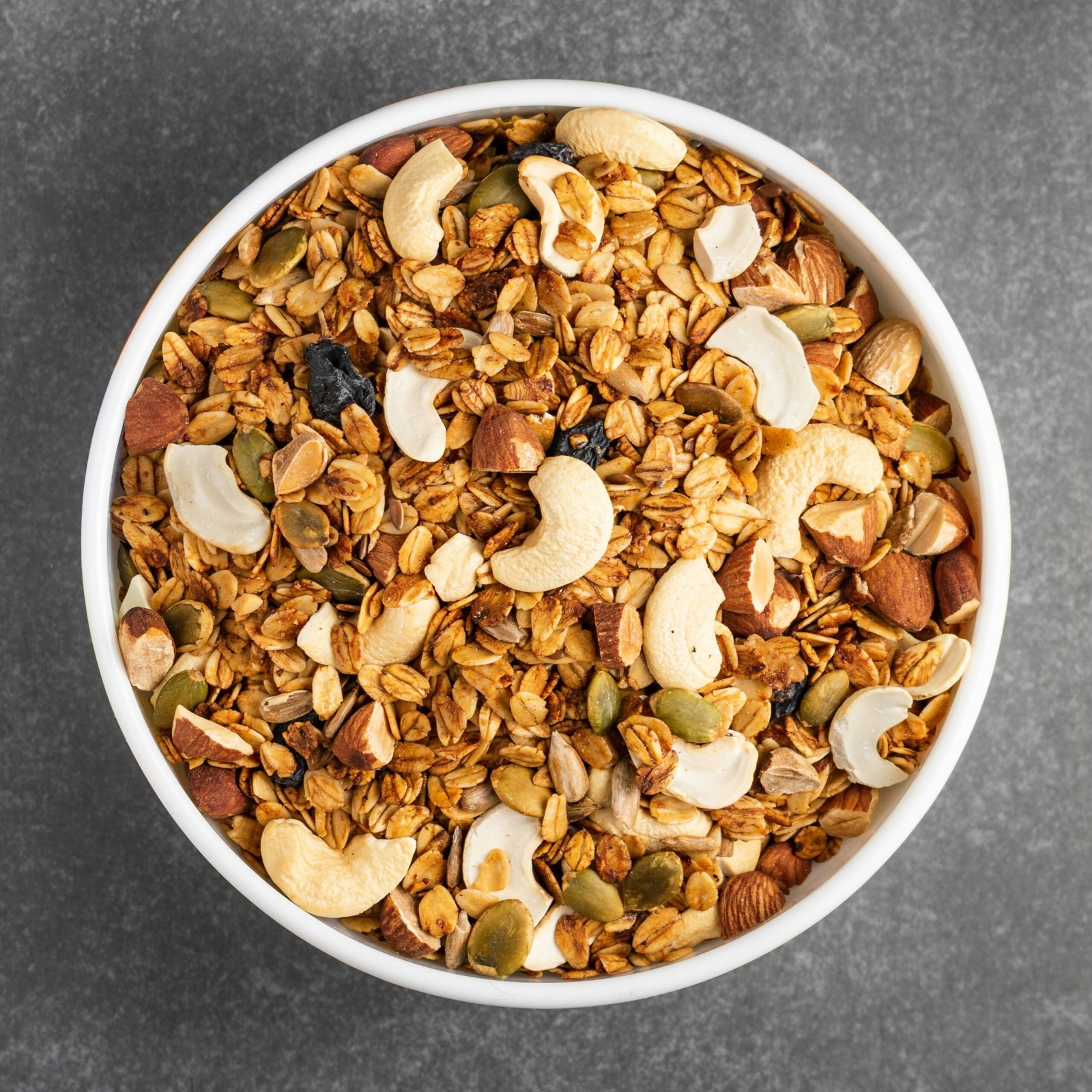Understanding the Importance of Healthy Snacking
Healthy snacking plays a pivotal role in maintaining a balanced diet, offering various benefits that extend beyond mere hunger management. By incorporating nutritious snacks into daily eating habits, individuals can effectively sustain energy levels throughout the day. This consistent energy supply is crucial for maintaining productivity, especially during long stretches between main meals.
Moreover, healthy snacking helps prevent overeating during breakfast, lunch, or dinner. When one waits too long between meals, the temptation to overeat becomes significant, leading to potential weight gain and digestive discomfort. By consuming small, nutrient-rich snacks, individuals can manage hunger more effectively and approach main meals with a controlled appetite, promoting better portion control and dietary balance.
Another critical aspect of healthy snacking is its role in providing essential nutrients that might otherwise be missed. Snacks such as fruits, vegetables, nuts, and whole grains are rich sources of vitamins, minerals, and fiber. These nutrients support various bodily functions, including immune response, skin health, and digestion. By choosing snacks wisely, one can fill nutritional gaps that main meals might not completely address.
Healthy snacking also contributes to stabilizing blood sugar levels. Consuming snacks that are low in refined sugars and high in protein or complex carbohydrates helps maintain steady glucose levels, reducing the risk of energy crashes and mood swings. This stability is particularly beneficial for individuals with diabetes or those prone to hypoglycemia, as it aids in preventing sudden drops in blood sugar that can lead to dizziness or fatigue.
Finally, the impact of healthy snacking on concentration and mood cannot be overstated. Nutrient-dense snacks provide the brain with a steady supply of glucose, enhancing cognitive function and improving focus. Additionally, the presence of certain nutrients, such as omega-3 fatty acids in nuts and seeds, has been linked to better mental health and a more positive mood.
Choosing Nutrient-Dense Snacks
When selecting snacks that contribute positively to your overall health, it’s crucial to prioritize nutrient-dense options. Nutrient-dense snacks are those that offer a high amount of vitamins, minerals, fiber, and healthy fats relative to their calorie content. These snacks not only satiate hunger but also support various bodily functions, enhancing your overall well-being.
Fruits and vegetables are prime examples of nutrient-dense snacks. They are rich in essential vitamins and minerals, such as vitamin C, potassium, and folate, and provide dietary fiber that aids digestion and maintains satiety. For instance, an apple or a serving of carrot sticks can be a refreshing and nutritious choice. Additionally, nuts and seeds, like almonds and chia seeds, supply healthy fats, protein, and fiber, making them excellent options for a quick, energy-boosting snack.
Whole grains, such as oatmeal or whole-grain crackers, also make for superb snack choices. They are packed with fiber and essential nutrients like B vitamins and iron, promoting sustained energy levels and overall health. Incorporating these into your snacking routine can help keep hunger at bay effectively and healthily.
Reading nutrition labels is a critical skill in identifying nutrient-dense snacks. Look for items with minimal added sugars and unhealthy fats. A good rule of thumb is to choose snacks with short ingredient lists, where whole foods are listed as the primary components. Avoid snacks high in trans fats and added sugars, as these can contribute to long-term health issues such as heart disease and diabetes.
By focusing on nutrient-dense snacks, you can create a balanced and healthy snacking habit that supports your nutritional needs. Remember, the goal is to select snacks that not only satisfy your hunger but also nourish your body.
Portion Control and Mindful Eating
Effective portion control is pivotal in maintaining healthy snacking habits, as it helps to prevent over-snacking and contributes to overall dietary balance. Utilizing smaller plates or bowls can be an efficient strategy to manage snack portions. When snacks are served on larger dishes, the perception of what constitutes an appropriate portion may become skewed, leading to unintentional overconsumption. By opting for smaller containers, individuals can visually trick themselves into feeling satisfied with less.
Pre-packaged servings also offer a practical solution for portion control. These convenient options eliminate the guesswork involved in dividing snacks into appropriate quantities. For instance, nuts, dried fruits, and even savory snacks are often available in single-serving packs, making it easier to enjoy a controlled portion without the temptation to overindulge.
Moreover, mindful eating plays a crucial role in fostering healthier snacking habits. This practice involves paying close attention to both physical hunger cues and the eating experience itself. By eating mindfully, individuals can better gauge their hunger and fullness levels, ensuring that they snack only when truly hungry rather than out of boredom or emotional triggers.
To practice mindful eating, one should focus on the sensory aspects of the snack, such as its taste, texture, and aroma. This heightened awareness can enhance the overall eating experience and promote satisfaction with smaller portions. Additionally, slowing down the pace of eating allows the body’s satiety signals to register, reducing the likelihood of overeating.
Implementing portion control and mindful eating techniques can significantly improve one’s snacking habits. These strategies not only help in managing calorie intake but also encourage a more thoughtful and enjoyable approach to snacking. By being mindful of both portion sizes and the eating process, individuals can maintain a balanced diet and keep hunger at bay effectively.
Healthy Snack Ideas and Recipes
Finding nutritious snacks that cater to various dietary needs can be challenging, but with a little creativity, it’s entirely feasible. For those who follow a gluten-free diet, try making your own trail mix with nuts, seeds, and dried fruits. This combination provides a good mix of healthy fats, protein, and fiber, keeping you full and energized. Another simple option is rice cakes topped with avocado slices and a sprinkle of sesame seeds.
Vegans can enjoy snacks like hummus with fresh vegetable sticks, such as carrots, celery, and bell peppers. Hummus is rich in protein and fiber, making it a satisfying and nutritious choice. Additionally, roasted chickpeas are another excellent option. Simply toss chickpeas with olive oil, salt, and your favorite spices, then bake until crispy.
For those seeking high-protein snacks, Greek yogurt topped with berries and a drizzle of honey is both delicious and nutrient-dense. Cottage cheese with pineapple chunks is another quick and easy high-protein snack. If you’re on the go, consider packing hard-boiled eggs, which are convenient and loaded with protein.
Meal prepping can significantly ease the process of maintaining healthy snacking habits. Set aside time each week to prepare portions of your favorite snacks. For instance, cut up vegetables and store them in airtight containers, or pre-make smoothie packs by freezing fruit and spinach in individual bags, ready to blend with your liquid of choice.
Proper storage is also crucial to ensuring your snacks remain fresh and appetizing. Use glass containers for items like yogurt and hummus to maintain their taste and quality. Keeping snacks visible and accessible in your refrigerator or pantry can also encourage healthier choices when hunger strikes.
By integrating these healthy snack ideas and recipes into your routine, you can effortlessly keep hunger at bay while supporting your dietary preferences and nutritional goals.




